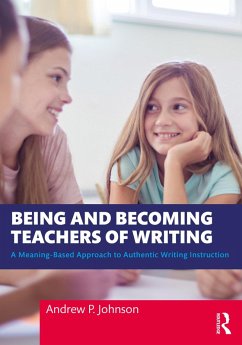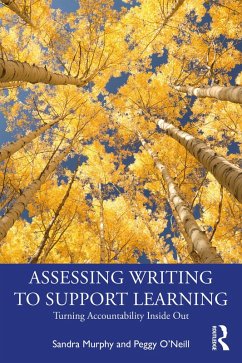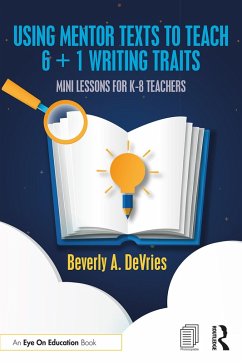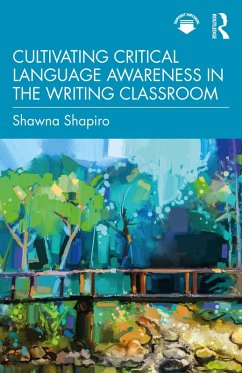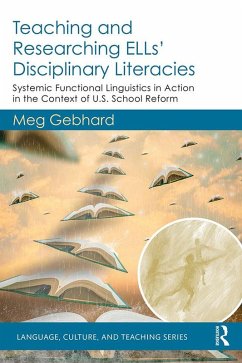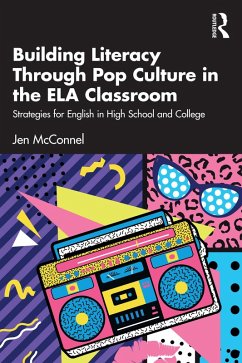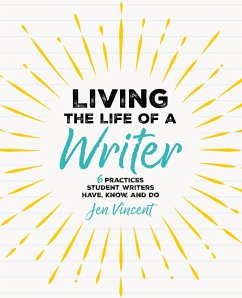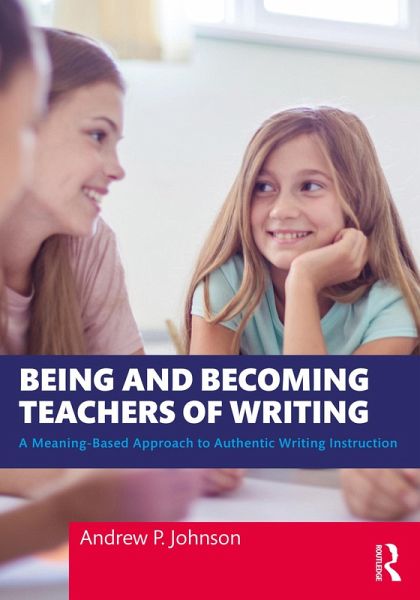
Being and Becoming Teachers of Writing (eBook, PDF)
A Meaning-Based Approach to Authentic Writing Instruction
Versandkostenfrei!
Sofort per Download lieferbar
37,95 €
inkl. MwSt.
Weitere Ausgaben:

PAYBACK Punkte
19 °P sammeln!
This engaging, inviting textbook from a renowned expert in writing education provides all the knowledge, pedagogical strategies, and tools needed to enable any teacher to be an effective teacher of writing.Using the five-step writing process as a foundation, the text describes how to teach the necessary skills related to grammar, spelling, punctuation, and other writing mechanics, and addresses all major genres and stages of writing. Written in an authentic voice that exemplifies good writing, Johnson presents a variety of pragmatic, research-based strategies that support students' writing dev...
This engaging, inviting textbook from a renowned expert in writing education provides all the knowledge, pedagogical strategies, and tools needed to enable any teacher to be an effective teacher of writing.
Using the five-step writing process as a foundation, the text describes how to teach the necessary skills related to grammar, spelling, punctuation, and other writing mechanics, and addresses all major genres and stages of writing. Written in an authentic voice that exemplifies good writing, Johnson presents a variety of pragmatic, research-based strategies that support students' writing development and encourage teachers to apply their own creativity and intelligence in the classroom.
This is an essential text for courses in writing instruction, literacy methods, and teaching English Language Arts (ELA).
Using the five-step writing process as a foundation, the text describes how to teach the necessary skills related to grammar, spelling, punctuation, and other writing mechanics, and addresses all major genres and stages of writing. Written in an authentic voice that exemplifies good writing, Johnson presents a variety of pragmatic, research-based strategies that support students' writing development and encourage teachers to apply their own creativity and intelligence in the classroom.
This is an essential text for courses in writing instruction, literacy methods, and teaching English Language Arts (ELA).
Dieser Download kann aus rechtlichen Gründen nur mit Rechnungsadresse in A, B, BG, CY, CZ, D, DK, EW, E, FIN, F, GR, HR, H, IRL, I, LT, L, LR, M, NL, PL, P, R, S, SLO, SK ausgeliefert werden.




